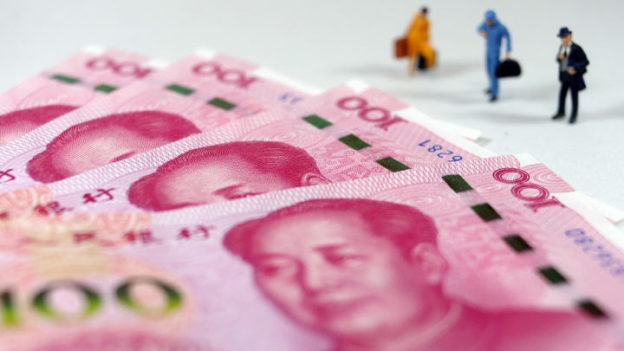Dec 19, 2017, Minister for Planning and Development Ahsan Iqbal said that the government was considering a Chinese proposal to use renminbi (RMB or yuan) instead of the US dollar for payments in all bilateral trade between China and Pakistan.The decision was taken after rejecting a Chinese proposal to allow yuan as legal tender in Gwadar, Balochistan.
`The SBP, in the capacity of the policy maker of financial and currency markets, has taken comprehensive policy related measures to ensure that imports, exports and financing transactions can be denominated in yuan,` said a statement issued by the SBP. It further said both public and private sector enterprises (ie both Pakistanis and Chinese) are free to choose yuan for bilateral trade and investment activities.
The RMB is an approved currency for denominating foreign currency transactions in Pakistan. The SBP has already put in place the required regulatory framework which facilitates use of yuan in trade and investment transactions such as opening of letter of credits (LCs) and availing financing facilities in yuan.
In terms of regulations in Pakistan, yuan is on a par with other international currencies such as dollar, euro and Japanese yen, etc. In FY17, Pakistan exported goods and services worth $1.62 billion while the imports from China were $10.57bn reflecting a great imbalance.
The two countries have yet not chnalised a free trade agreement (FTA). The FTA may benefit exports from Pakistan as the country critically needs to improve its exports due to huge trade deficits. After signing a Currency Swap Agreement (CSA) with People`s Bank of China (PBoC) in 2012,
SBP had taken a series of steps to promote use of yuan in Pakistan for bilateral trade and investment with China. The central bank has allowed banks to accept deposits and give trade loans in yuan. For onward lending the proceeds of CSA, the SBP has put in place the loan mechanism for banks to get the yuan financing from the SBP for onward lending to importers and exporters having underlying trade transactions denominated in the Chinese currency.
In 2012, the SBP issued a circular that said the authorised dealers may open for-foreign currency accounts and extend trade loans under FE-25 Scheme in US dollar, pound sterling, euro, Japanese yen, Canadian dollar, UAE dirham, Saudi riyal, Chinese yuan, Swiss franc and Turkish lira. Industrial and Commercial Bank of China Ltd (ICBC) Pakistan has been allowed to establish a local yuan settlement and clearing setup in Pakistan enabling it to open yuan accounts of the Chinese banks operating in Pakistan and to facilitate settlement of yuan-based transactions such as remittance to/from China.
With the opening of Bank of China in Pakistan, the access to onshore Chinese markets will strengthen further. Apart from the above, several banks in Pakistan maintain onshore yuan nostro accounts, said the SBP. Considering the recent local and global economic developments, particularly with the growing size of trade and investment with China under CPEC, the Bank foresees that yuan denominated trade with China will increase significantly and will yield long term benefits for both the countries. When asked, the SBP spokesman said the statement on yuan was issued due to many queries from media about the use of the currency for bilateral trade. He said it seemed there was confusion about the use of yuan for bilateral trade which was clarified with this detailed statement.







